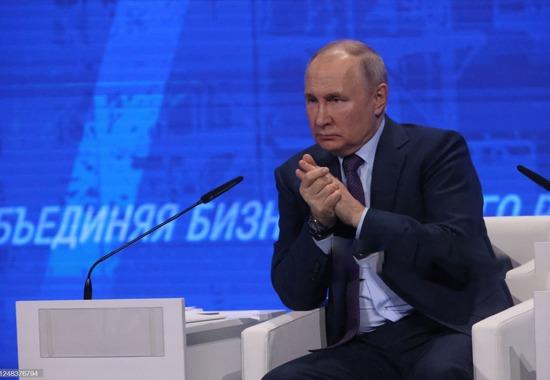In yet another jolt for Russia, an arrest warrant was issued against President Vladimir Putin by the International Criminal Court on Friday. International Criminal Court (ICC) on Friday issued an arrest warrant against Russian President Vladimir Putin and Russia’s commissioner for children’s rights, Maria Alekseyevna Lvova-Belova for committing war crimes in Ukraine. To be precise, Vladimir Putin and Maria Alekseyevna Lvova-Belova are accused of unlawfully deporting Ukrainian children to Russia where many have been adopted by Russian families. However, Kremlin has categorically denied the claims and called the Vladimir Putin arrest warrant as 'void'. Moscow dismissed the orders as "void." Russia is not a party to the ICC so it was unclear if or how Putin could ever end up in the dock. On the other hand, Ukraine welcomed the ICC announcement, with President Volodymyr Zelensky hailing the "historic decision."
More than 16,000 Ukrainian children have been deported to Russia since the February 24, 2022 invasion, according to Kyiv, with many allegedly placed in institutions and foster homes.ICC prosecutor Karim Khan told AFP that Putin was now liable for arrest if he set foot in any of the court's more than 120 member states. Now, the question arises will Vladimir Putin be arrested or what ICC's arrest warrant against Putin means in reality? To understand, keep reading-
Will Vladimir Putin be arrested?
The answer is 'highly' no. However, due to ICC's arrest warrant against Putin, it is indeed possible that the Russian President's foreign gets limited. As per Guardian, Russia does not recognise the court and does not extradite its citizens, it is highly unlikely that Putin or Lvova-Belova will be surrendered to the court’s jurisdiction any time soon. But the issuing of the warrant remains a highly significant moment for a number of reasons. It sends a signal to senior Russian officials – military and civilian – who may be vulnerable to prosecution either now or in the future and would further limit their ability to travel internationally, including to attend international forums.
However, the ICC does not recognize immunity for heads of state in cases involving war crimes, crimes against humanity or genocide. For the unversed, in 2015, South Africa declined to enforce an ICC warrant for the arrest of the Sudanese dictator Omar al-Bashir during a visit. Pretoria had argued that it saw “no duty under international law and the Rome statute to arrest a serving head of state of a [ICC] non-state-party such as Omar al-Bashir”, and several other countries that he visited also declined to arrest him.
Putin may attend G20 summit in India in September
So why Vladimir Putin needs to worry?
As of now, Vladimir Putin is safe and secure in his den. Not only this, Putin is also safe from extradition. However, a future Kremlin leader may decide it is more politic to send him to The Hague than to protect him. For instance, Slobodan Milošević, the former president of Yugoslavia, who was indicted on a series of war crimes charges by the international criminal tribunal for the former Yugoslavia in the midst of the war in Kosovo in 1999. The judge added that the prosecutor could form cases of new allegations against Putin, thus expanding the warrants.
